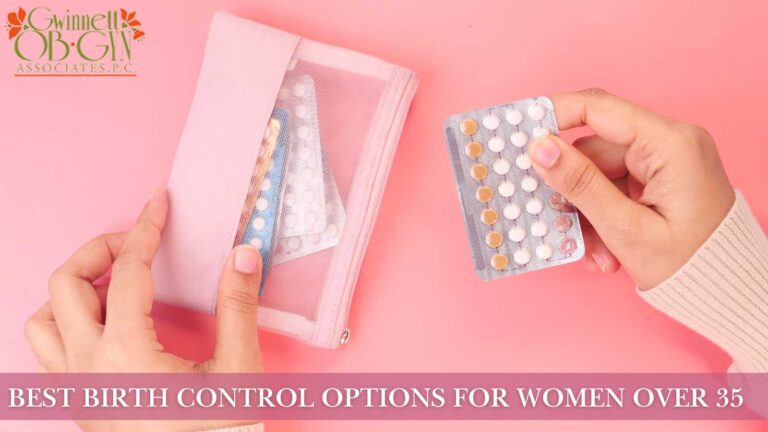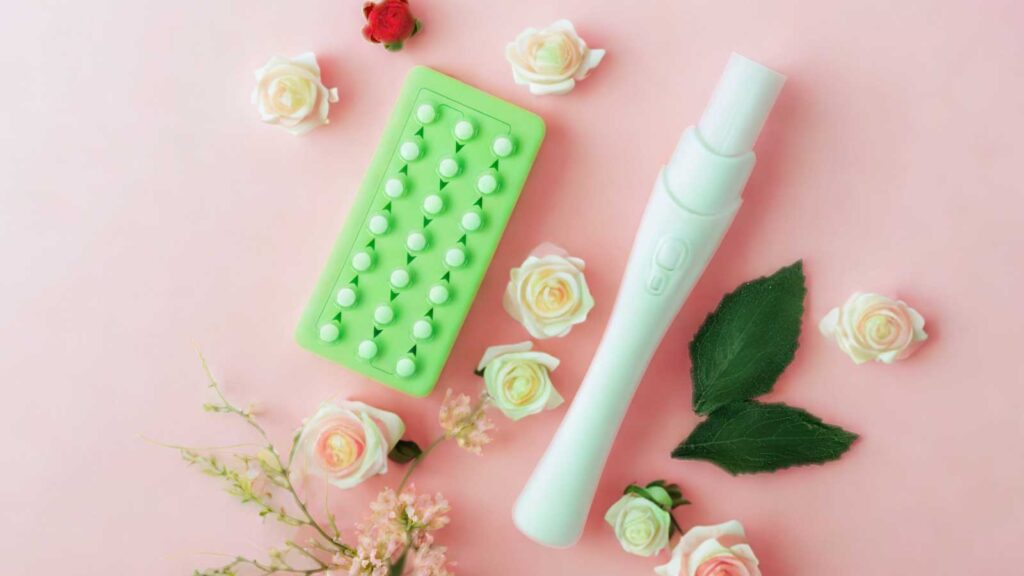Choosing effective birth control after age 35 requires understanding how your body’s needs change during this pivotal decade. While fertility naturally declines, pregnancy remains possible until menopause is medically confirmed, making reliable contraception essential.
A qualified gynecologist becomes your most valuable partner in selecting methods that balance safety, effectiveness, and convenience for your lifestyle. Modern contraceptive options offer women over 35 unprecedented control over their reproductive health, with many methods providing additional benefits beyond pregnancy prevention.
Long-Acting Reversible Contraceptive Methods
Long-acting reversible contraceptives deliver the highest effectiveness rates available today, with failure rates below 1% when properly placed by your healthcare provider. These methods eliminate daily compliance requirements while providing years of continuous protection, making them ideal for women over 35 who want reliable contraception without ongoing maintenance. The convenience factor appeals to busy professionals and mothers who need a contraception that works seamlessly with demanding schedules.
IUD Options for Extended Protection
Intrauterine devices (IUDs) represent the most effective reversible contraception available, surpassing sterilization in real-world effectiveness studies. Here’s a look at your options:
- Copper IUD: Provides hormone-free protection for up to 10 years and prevents pregnancy by creating conditions that stop sperm from reaching and fertilizing an egg, all without affecting your natural hormone cycles. Many women appreciate that this device can be removed immediately if pregnancy is desired, with fertility returning to normal levels within months.
- Hormonal IUDs: Release small amounts of the hormone levonorgestrel into your uterus, providing protection for 3-7 years depending on which device you choose. These systems often dramatically reduce menstrual bleeding, with up to 50% of users experiencing complete cessation of periods by the second year. Your healthcare provider can determine which IUD type best matches your health profile and reproductive goals through a comprehensive consultation.
Your gynecologist can determine which IUD type best matches your health profile and reproductive goals through a comprehensive consultation.
Contraceptive Implant for Busy Lifestyles
The single-rod contraceptive implant delivers three years of highly effective protection through continuous progestin release from a matchstick-sized device inserted under the upper arm skin. This method particularly appeals to women over 35 who travel frequently for work or have unpredictable schedules that make daily pill-taking challenging.
The insertion takes less than five minutes at your doctor’s office and starts working right away when placed at the right time during your cycle. Initial irregular bleeding patterns affect approximately 60% of users but typically stabilize within 12 months as your body adjusts to consistent hormone levels.
The implant can be removed at any time during the three years, with ovulation resuming within weeks of removal. Many women find the arm placement discreet and appreciate not having to remember daily medications or schedule regular injections.
ALSO READ: How To Choose A Method Of Contraception
Hormonal Birth Control After Age 35
Hormonal contraceptives remain medically appropriate for most healthy women over 35, with modern formulations containing significantly lower hormone doses than previous generations used. Current combination pills, patches, and rings provide excellent pregnancy prevention while often improving menstrual-related symptoms common in this age group. Your healthcare provider will evaluate individual risk factors, including smoking status, blood pressure readings, and personal medical history, before recommending specific hormonal options.
Modern Pills for Healthy Women
Contemporary birth control pills offer multiple health benefits beyond contraception for women over 35. Here’s what you should know:
- Cancer Protection: Long-term use reduces your risk of ovarian and endometrial cancers
- Cycle Regulation: Low-dose combination formulas help regulate irregular periods that become more common in your late thirties and early forties
- Fewer Periods: Extended cycle pills let you have only four periods per year, reducing symptoms and increasing convenience
- Safety for Non-Smokers: Healthy women who don’t smoke can safely use combination pills with proper medical monitoring
- Additional Benefits: Many users experience reduced acne, lighter periods, and less severe PMS symptoms
Regular blood pressure checks and annual wellness exams ensure continued safety, as cardiovascular risk factors may change with age.
Progestin Only Methods for Smokers
progestin-only contraceptives without the blood clot risks associated with estrogen-containing methods. The mini-pill requires precise daily timing within the same three-hour window but provides excellent protection when used correctly. This option works by thickening cervical mucus and thinning the uterine lining to prevent pregnancy.
Injectable progestin administered every three months eliminates daily compliance issues while providing highly effective contraception for women with medical contraindications to estrogen. Some users experience temporary weight gain or irregular bleeding patterns, but these side effects often improve over time. With proper medical evaluation, your response to progestin-only methods can be monitored and recommendations adjusted based on your individual tolerance and satisfaction levels.
Emergency Contraception and Missed Doses
Contraceptive failures happen, and knowing your emergency options is crucial. The morning-after pill works most effectively within 72 hours of unprotected sex, though some types remain effective up to 120 hours. Copper IUDs can also serve as emergency contraception when inserted within five days.
If you miss birth control pills, the guidance depends on your specific pill type and how many you’ve missed. Generally, take the missed pill as soon as you remember, use backup contraception for seven days, and contact your healthcare provider if you’ve missed multiple pills.
ALSO READ: Fertility And Why Age Matters
Permanent Solutions for Completed Families
Permanent contraception becomes increasingly appealing for women over 35 who have completed their desired family size or feel certain about not wanting children. These procedures offer ultimate convenience and long-term cost savings compared to decades of using reversible methods.
Gynecologists emphasize careful consideration before choosing sterilization, as reversal procedures are complex, expensive, and success rates vary significantly depending on the original technique used.
Female and Male Sterilization Options
Sterilization offers permanent birth control for individuals and couples who are sure they do not wish to have children in the future.
Female Sterilization (Laparoscopic Tubal Ligation):
- Provides immediate, permanent protection against pregnancy.
- Most patients experience same-day discharge and minimal recovery time.
- Modern techniques use small incisions and specialized instruments to block or obliterate fallopian tubes.
- Bilateral salpingectomy, which involves removing both tubes entirely, may also reduce ovarian cancer risk according to recent research studies while providing complete sterility.
Male Sterilization (Vasectomy):
- Offers a more straightforward outpatient procedure with lower complication rates and costs compared to female sterilization.
- This 20-minute procedure typically requires only local anesthesia.
- Men can often return to light work within days.
- Couples often choose vasectomy because it involves less surgical risk and faster recovery, while providing equally effective permanent contraception for the partnership once confirmed.
When Permanence Makes Sense
Permanent contraception can be a wise financial choice for women over 35, considering the long-term costs of other methods. For individuals with medical conditions that lead to a high-risk pregnancy, sterilization offers significant psychological relief from the anxiety of contraceptive failure. This decision is best suited for those in stable relationships who are confident they’ve completed their family.
However, it’s crucial not to rush into permanent methods during major life transitions or emotional stress, as this can compromise clear decision-making. Your gynecology professional will provide thorough counseling and recommend a waiting period to ensure irreversible choices align with your long-term life goals, including considering how future circumstances like remarriage or the loss of existing children might affect your satisfaction.
Special Considerations for Method Selection
Contraceptive selection after age 35 requires evaluating numerous factors beyond simple effectiveness percentages, including evolving health risks and lifestyle priorities. Chronic medical conditions become more prevalent during this decade and may eliminate specific contraceptive options from consideration.
Healthcare providers conduct comprehensive assessments that consider your complete health picture, medication interactions, and personal preferences to identify the optimal choices for your situation.
Health Factors That Influence Choice
Cardiovascular disease risk increases with age and may contraindicate estrogen-containing contraceptives for some women over 35. Conditions like hypertension, diabetes, migraine with aura, or previous blood clots significantly narrow safe contraceptive options. Liver disease, active breast cancer, or unexplained vaginal bleeding requires careful evaluation before selecting hormonal methods.
Your gynecologist will review current medications for potential interactions with hormonal contraceptives and monitor relevant health parameters regularly. Some medical conditions improve with specific contraceptive methods, such as endometriosis responding favorably to continuous hormone suppression. Preventive health benefits like reduced ovarian cancer risk with long-term pill use may influence method recommendations for women with strong family histories.
Perimenopause Considerations
As you approach menopause, typically beginning in your forties, fluctuating hormone levels create unique contraceptive challenges that require careful consideration:
- Cycle Changes: Your periods become unpredictable, making fertility awareness methods nearly impossible to use effectively since you can no longer predict ovulation timing.
- Heavy Bleeding: Many women experience heavier, longer periods during perimenopause. Hormonal contraceptives like the Mirena IUD or continuous birth control pills can significantly reduce bleeding and provide relief.
- Symptom Management: Certain hormonal contraceptives can help stabilize hormone levels and reduce hot flashes, night sweats, mood swings, and sleep disruption.
- Bone Health: Methods that don’t suppress your natural estrogen production, such as copper IUDs or barrier methods, may be preferable if you’re at risk for osteoporosis.
- Fertility Uncertainty: While fertility declines significantly after 40, surprise pregnancies remain possible until menopause is confirmed, making reliable contraception essential even when periods seem irregular.
Effectiveness Versus Convenience Balance
Choosing the proper birth control method often involves weighing how effective it is against how easy it is to use consistently.
- Real-world effectiveness depends heavily on correct and consistent use. This means user-friendly methods are often more reliable than theoretically superior options that are misused.
- Daily pills require excellent memory and routine adherence.
- Long-acting methods, such as IUDs or implants, significantly reduce the risk of human error because they don’t require daily reminders.
- When evaluating different contraceptive categories, honestly consider your:
- Personality
- Lifestyle demands
- Organizational skills
- Some women prioritize additional health benefits, such as lighter periods or clearer skin, while others focus exclusively on the effectiveness of pregnancy prevention.
- Factors like your travel schedules, work demands, and relationship stability all impact which methods integrate successfully into your daily life.
Your gynecologist can help you rank these factors according to your priorities and identify contraceptives that excel in your most important areas.
Transitioning to Menopause
Knowing when to stop using birth control can be confusing. Generally, you can discontinue contraception:
- One year after your last period if you’re over 50
- Two years after your last period if you’re under 50
- When blood tests confirm menopause (though this isn’t always reliable)
If you’re using hormonal birth control, it can mask menopausal symptoms and make it harder to know when you’ve reached menopause. Your healthcare provider can help determine the best timing for your situation.
Making Your Decision with Professional Guidance
Selecting optimal birth control requires personalized medical expertise that considers your unique health profile, lifestyle demands, and reproductive goals. Gynecology professionals provide essential guidance through the decision-making process, offering evidence-based recommendations explicitly tailored to women over 35. Expert consultation ensures you receive accurate information about effectiveness rates, potential side effects, and long-term health implications of each contraceptive option.
Take Control of Your Reproductive Health Today
Don’t let confusion about contraceptive options leave you feeling uncertain or inadequately protected during this critical life stage. The gynecology experts at Gwinnett OB/GYN stand ready to help you identify the perfect contraceptive solution that matches your current needs and future goals. With over 45 years of experience serving women throughout Snellville and surrounding communities, our team combines advanced clinical expertise with compassionate, personalized care.
Schedule your contraceptive consultation today and discover which birth control method will provide the confidence and protection you deserve. Contact Gwinnett OB/GYN now to book your comprehensive assessment and take the essential first step toward optimal reproductive health management tailored specifically for women over 35.



